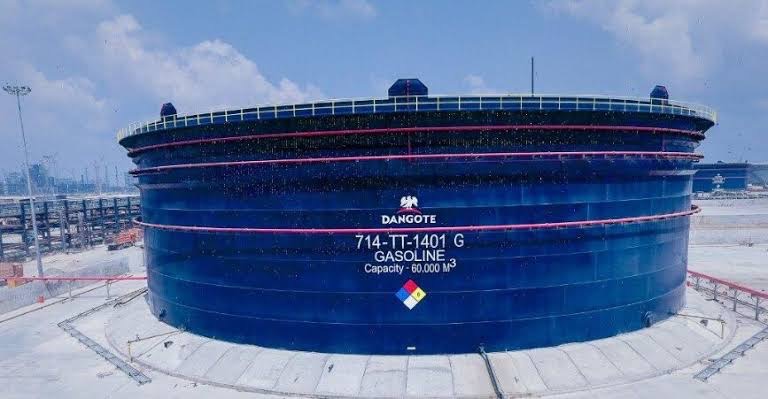KEY POINTS
- Dangote Petroleum Refinery cuts ex-depot petrol price from ₦850 to ₦820 per litre, effective August 12.
- Company to deploy 4,000 CNG-powered trucks from August 15 to improve distribution efficiency.
- Move comes as Nigeria maintains over a billion litres of petrol in reserve to prevent scarcity.
Dangote refinery has lowered the wholesale price of gasoline, the second big action in two months to stabilize supply and ease pressure on petrol prices.
On Tuesday, Dangote Petroleum Refinery announced that it had reduced the ex-depot (gantry) price of Premium Motor Spirit by ₦30 to ₦820 per litre, with immediate effect. Anthony Chiejina, the company’s chief branding and communications officer, made the announcement in a statement that highlighted the refinery’s dependable fuel delivery and “unwavering commitment to national development.”
The change is made at a time when drivers and transportation providers are struggling with high gas prices nationwide. In light of worries about inflation and the affordability of energy, the company stated that the decision is consistent with its operational strategy to guarantee a stable supply chain.
Refinery eyes long-term shift to cleaner fuel distribution
Dangote Petroleum Refinery announced plans to implement 4,000 trucks powered by compressed natural gas (CNG) starting on August 15 in conjunction with the price reduction. The rollout is a part of a gradual shift to more environmentally friendly fuel transportation, which could lower emissions and distribution costs.
The move follows the Nigerian National Petroleum Company’s recent assurance that the country has over a billion litres of petrol in reserve, a buffer designed to calm fears of scarcity or panic buying. Industry analysts say Dangote’s latest price reduction, while modest, could influence downstream pricing and temper pump rates in certain markets—although much depends on transport costs, regional supply bottlenecks, and currency volatility.
Since commencing operations earlier this year, the refinery has positioned itself as a central player in Nigeria’s quest to curb fuel imports and stabilize domestic supply. The ₦15 billion facility, located in the Lekki Free Zone, is also expected to play a critical role in the nation’s transition toward cleaner energy solutions in the coming years.



